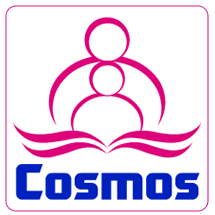Causes of Unhygienic Conditions of Primary Schools in District Kotli AJ&K
DOI:
https://doi.org/10.5281/ijete.v1i3.34Keywords:
Unhygienic conditions, Dirty Restrooms, Poor Waste Management, Poor Food Handling, Primary SchoolsAbstract
The purpose of the investigation was to confirm the Causes of unhygienic conditions of primary school in District Kotli AJ&K. The study was descriptive in nature and survey method was used to collect the data. The total population consisted of 312 primary school teachers of tehsil Kotli and Kohiratta. Simple random sampling technique was used to draw the sample from the population. The researcher selected (175) teachers as a sample from whole population. A self-developed questionnaire based on Five Point Likert Scale was used for the collection of data. The researcher personally collected the data after evaluating its validity and reliability. Statistical Package for Social Sciences (SPSS) was used to analyze the data by using frequency and percentage. It is concluded that primary schools’ classroom is cleaned on a daily basis and students are aware of the importance of cleanliness. Classroom teacher may actively address hygiene condition. Moreover, proper sanitation is available in the classroom and classrooms are organized sufficiently for all students.
Downloads
References
References
Abegaz, S. B. (2022). Food Safety Practices and Associated Factors in Food Operators: A Cross Sectional Survey in the Students’ Cafeteria of Woldia University, North Eastern
Anand, N. (2018). Left Dry: Water, Politics, and Exclusion in Mumbai. Urban Life: Readings in the Anthropology of the City, Waveland Press, Illinois, 460-473.
Augustin, J. C., Kooh, P., Bayeux, T., Guillier, L., Meyer, T., Jourdan-Da Silva, N., & Anses . (2020) Working Group on Consumer Information on Foodborne Biological Risks. Contribution of foods and poor food-handling practices to the burden of foodborne infectious diseases in France. Foods, 9(11), 1644.
Balfanz, R., & Byrnes, V. (2012). The importance of being there: A report on absenteeism in the
nation’s public schools. Baltimore, MD: Johns Hopkins University School of Education, Everyone Graduates Center, Get Schooled, 1-46.
Bittencourt, F. L. F., & Martins, M. F. (2022). Thermochemically-driven treatment units for fecal matter sanitation: a review addressed to the underdeveloped world. Journal of Environmental Chemical Engineering, 108732.
Brewis, A., & Wutich, A. (2019). Lazy, crazy, and disgusting: stigma and the undoing of global health. Johns Hopkins University Press.
Burke, N., Zacharski, K. A., Southern, M., Hogan, P., Ryan, M. P., & Adley, C. C. (2018). The dairy industry: process, monitoring, standards, and quality. Descriptive food science, 162.
Dana, T. (2011). Unhygienic living conditions and health problems: a study in selected slums of Dhaka city. OIDA International Journal of Sustainable Development, 2(11), 27-34.
Dubin, N. (2007). Asperger syndrome and bullying: Strategies and solutions. Jessica Kingsley Publishers.
Dureab, F., Al-Falahi, E., Ismail, O., Al-Marhali, L., Al Jawaldeh, A., Nuri, N. & Jahn, A. (2019). An overview on acute malnutrition and food insecurity among children during the conflict in Yemen. Children, 6(6), 77.
Hess, D. E., & McAvoy, P. (2014). The political classroom: Evidence and ethics in democratic education. Routledge.
Hutton, G., & Chase, C. (2016). The knowledge base for achieving the sustainable development goal targets on water supply, sanitation and hygiene. International journal of environmental
research and public health, 13(6), 536. Kambala, C., Chinangwa, A., Chipeta, E., Torondel, B., & Morse, T. (2020). Acceptability of menstrual products interventions for menstrual hygiene management among women and girls in Malawi. Reproductive health, 17, 1-12. Kekana, H. N., Ruhiiga, T. M., Ndou, N. N., & Palamuleni, L. G. (2023). Environmental justice in
South Africa: the dilemma of informal settlement residents. GeoJournal, 1-17.
Kuhn, D. (2005). Education for thinking. Harvard University Press.
Mbakaya, B. C., Kalembo, F. W., & Zgambo, M. (2020). Use, adoption, and effectiveness of tippy-tap handwashing station in promoting hand hygiene practices in resource-limited settings: a systematic review. BMC Public Health, 20(1), 1-25.
Molotch, H., & Noren, L. (2010). Toilet: Public restrooms and the politics of sharing (Vol. 1). NYU Press.
Ogunsola, F. T., & Mehtar, S. (2020). Challenges regarding the control of environmental sources of contamination in healthcare settings in low-and middle-income countries-a narrative review. Antimicrobial Resistance & Infection Control, 9(1), 1-9.
Proctor, C., Garner, E., Hamilton, K. A., Ashbolt, N. J., Caverly, L. J., Falkinham III, J. O., ... & Haig,
S. J. (2022). Tenets of a holistic approach to drinking water-associated pathogen research, management, and communication. Water Research, 211, 117997.
Rahman, M. M., Ali, M. A., Parvez, A., Shahriar, M., Rahman, T., & Shameem, D. (2019). Knowledge and Practice of Personal Hygiene among Primary School Students in Dhaka, Bangladesh. Journal of Pharmaceutical Sciences and Research, 11(9), 3140-3144.
Sarkar, M. (2013). Personal hygiene among primary school children living in a slum of Kolkata, India. Journal of preventive medicine and hygiene, 54(3), 153.
Serge Kubanza, N., & Simatele, M. D. (2020). Sustainable solid waste management in developing countries: a study of institutional strengthening for solid waste management in Johannesburg, South Africa. Journal of Environmental Planning and Management, 63(2), 175-188.
Sharma, M. K., & Adhikari, R. (2022). Effect of School Water, Sanitation, and Hygiene on Health
Status Among Basic Level Students’ in Nepal. Environmental Health Insights, 16, 11786302221095030.
Trivedi, V. (2019). Understanding and Addressing Livelihood Problem of Rag-Pickers in Surat City. IASSI-Quarterly, 38(3), 423-437.
Yasmin, S. (2020). The outlook of supply chain management amid Covid 19 pandemic: an explorative analysis of recent research. Social Science Review, 37(2), 161-18.
Downloads
Published
How to Cite
Issue
Section
License
This is an Open Access article distributed under the term of the Creative Commons Attribution 4.0 International licenses permitting all use, distribution and reproduction in any medium provided the work is properly cited.

























